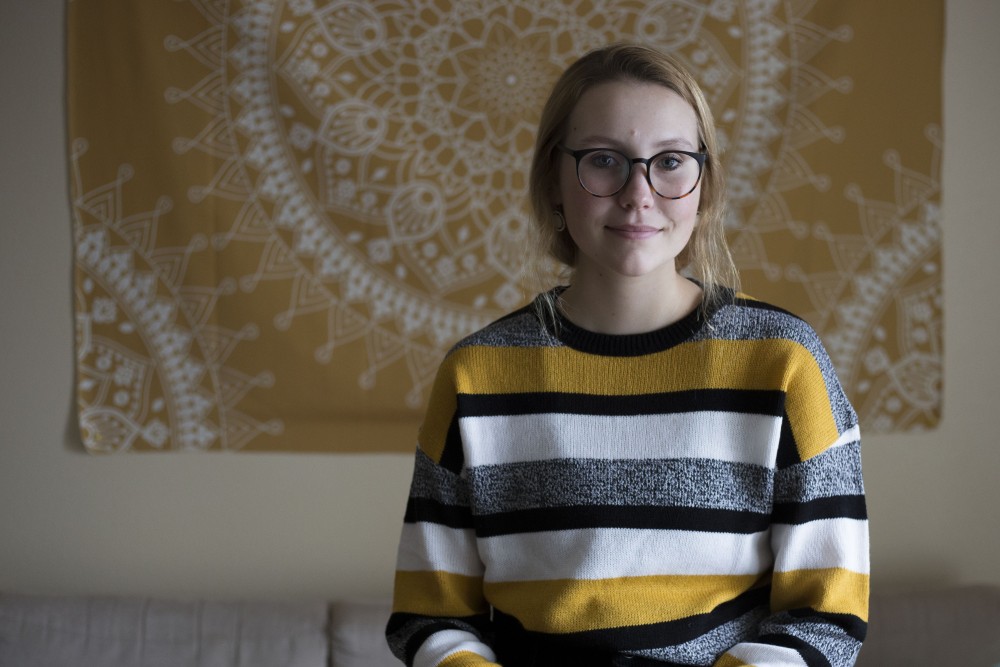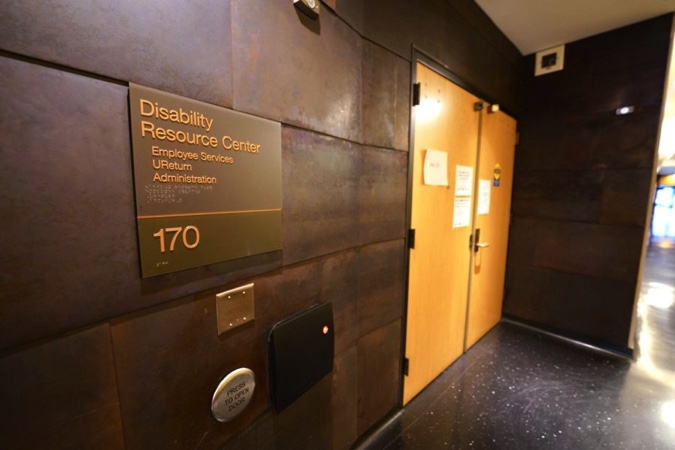University of Minnesota student Abby has suffered from food and body image issues for as long as she can remember. But when it started to take over her life last year, she realized she needed to seek help for her eating disorder.
“I originally didn’t think I was severe enough. … I still feel that way. With the diagnosis that I have, I feel like I’m not sick enough to be needing this,” Abby said, who asked to not use her last name because her parents aren’t aware of her diagnosis.
In 2018, 4.5 percent of students on the Twin Cities campus self-reported that they had been diagnosed with anorexia and/or bulimia in their lifetime, up from 3.7 percent in 2015, according to a University survey.
But the survey didn’t account for other types of eating disorders, like binge eating and other specified feeding and eating disorders.
“[Surveys] capture a huge number of people whose symptoms are distressing but don’t neatly fit a diagnosis [of anorexia or bulimia]. We know that there are a lot more people suffering than those statistics reflect,” said Mary Utz, a therapist at Boynton Health’s Mental Health clinic and a member of the clinic’s eating disorder team.
Fewer 20 percent of college students who are diagnosed with an eating disorder report receiving treatment, partially because of stigma, according to Elizabeth Claydon, assistant professor at West Virginia University, whose research focuses on eating disorders.
“Especially among male students, [people believe] eating disorders are a female disease. There’s a ton of misinformation out there … you can’t necessarily tell that someone has an eating disorder by looking at them,” she said.
However, some students say the on-campus resources for students suffering from an eating disorder aren’t enough. Boynton, the University’s primary student health resource, currently does not offer any eating disorder therapy groups or major treatment options on campus.
“It’s so expensive to go to another treatment program. Boynton has [10] free therapy sessions a year … and my insurance doesn’t cover anything else. They said, ‘Yeah, we think that you have this, but we can’t help you here,’” Abby said.
Underreported, untreated or unattainable
Students with eating disorders have raised concerns about insurance coverage and accessibility.
Students who believe they may be suffering from an eating disorder can request a free eating disorder assessment at Boynton, where they can be diagnosed and referred to off-campus specialized treatment institutions.
Boynton does not provide more resources because of the complexity of eating disorders, Utz said. Students can only see a therapist every three to four weeks, which is not often enough.
“We know that those students need more regular care then we can provide. They need to seek that specialist care and have that team,” Utz said.
Melrose Center and The Emily Program, the two programs recommended by the University, have inpatient and outpatient treatment plans for students with active symptoms. Unlike Boynton, they can offer a team approach that includes a therapist, dietitian and doctor to determine a method of care.
Katy, a theater major who asked to only be identified by her first name for privacy reasons, said she didn’t understand what she was struggling with until she was diagnosed. She said Boynton was a big part of her move to seek additional help at Melrose.
“I just wanted to find out what support and help I could get, but [Boynton] was able to give me a diagnosis. It felt so much better to have a name for what I was feeling,” she said.
Cost becomes a concern for students referred to outpatient treatment centers. Abby was enrolled in outpatient treatment at Melrose for six months before her insurance stopped covering the program, which she said was devastating.
Students recommended by Boynton can consult with a staff member about their insurance. Those attending Melrose can apply for a grant to cover their out of pocket expenses, which Utz says many receive.
“Out of pocket, it’s a lot … my sessions ranged from $50 to hundreds of dollars,” Abby said. “I felt so bad that my parents didn’t know what it was but they still would have to pay for it, so I stopped.”
Seeking support on campus
Taylor Peterson, a junior studying psychology and nutrition, was hospitalized after dropping to 60 pounds when she was 14 years old. She said she’s mostly recovered from her eating disorder after going through multiple inpatient treatments. But when the death of a family member caused her to relapse last semester, she said she tried to seek help again at Boynton before her symptoms became worse.
“They weren’t able to help me even though I wasn’t super seriously affected; I only had a few symptoms. They said they could help me with an appointment at Melrose, but I just needed to talk to someone about my symptoms … even in a group,” she said.
Boynton has 16 therapy groups or workshops this semester covering topics like PTSD, relationships and gender, but none are primarily focused on issues with food or body image.
While the University has offered support groups in the past, Jillian Lampert, chief strategy officer at The Emily Program and professor of an eating disorder management class at the University, said groups can cause students to think they don’t need more treatment.
“Sometimes they’ll go to a support group and feel like, ‘Yeah, I got it. I’m going to support group, that’s all I need.’ They need so much more, and the support group gives them this false sense of, ‘I’m doing enough to take care of myself,’” she said.

Students have also expressed concern over going to a campus group because of the stigma, Lampert said. Even naming the group something related to food or body image issues is difficult, she said.
“There’s still this kind of societal judgment about it. Sometimes people won’t even come to a group that has any remotely to do with eating or body image or anything like that,” she said.
Delaney Graves, a marketing major from South Dakota, began seeking treatment from a private therapist this year after she couldn’t find resources closer to home. She was disappointed to find no support groups for other people with eating disorders on campus.
“I would actually go to that, and I’m shocked they don’t offer it,” she said. “The more [seeking help] is vocalized, the less of a scary thing it is.”
Taking action to recover
Lampert said while students who have eating disorder symptoms may think they don’t need treatment, the disease can easily wreck their college careers.
“We often say the eating disorder will interfere with your schedule way more than the treatment will,” Lampert said. “People shouldn’t wait; they should get the care they need because it’ll help them go on and be able to do all the things they wanted.”
Many University students who went to off-campus treatment centers said it was life-changing, and the education and resources on campus have yet to catch up.
“All the emails from Boynton are focused on if you’re stressed with finals, feeling anxious, etc. There was nothing like that for eating disorders for me,” Abby said. “I would benefit from talking to more people and going to more things, but they aren’t that accessible or affordable here.”
Utz said there are no current plans to expand Boynton resources, but they will continue their outreach efforts.
According to Claydon, keeping a student on campus for treatment can be more effective, but a positive campus culture is also a big part of encouraging students to seek help.
“Campuses can be very triggering environments, whether it be the dining hall, sports, Greek life, etc.,” she said. “College is designed to help support a student so they can be the best they can be. This is just one more thing that we can provide.”













